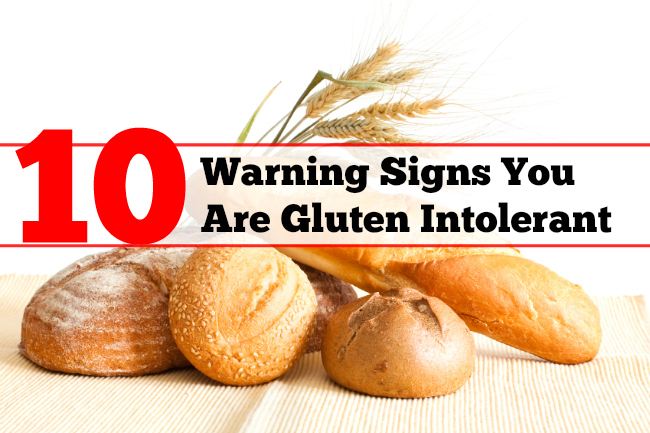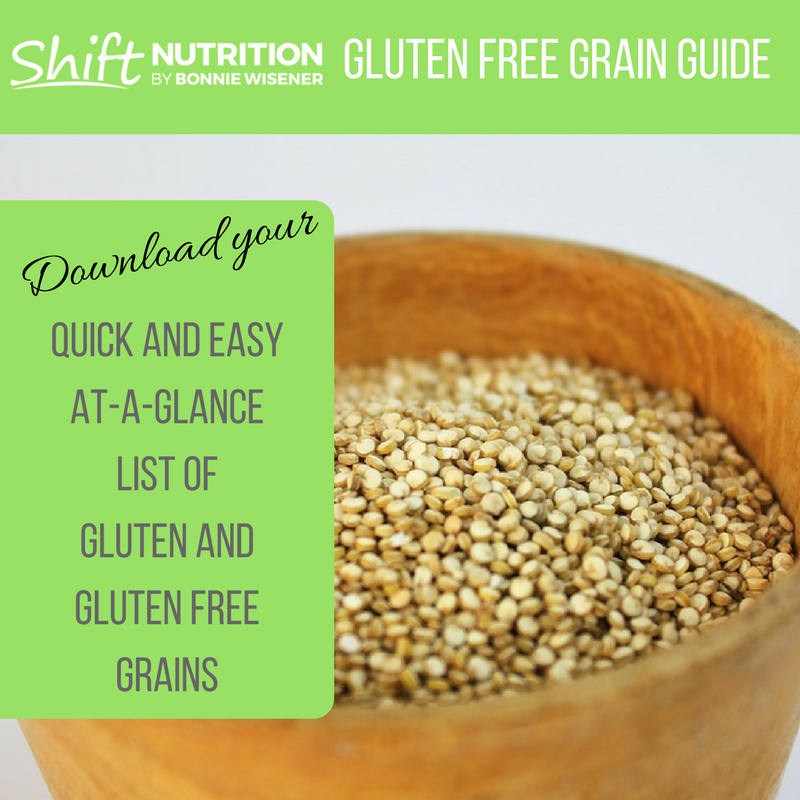10 Signs of Gluten Intolerance

It is difficult in this age of ‘nutrition-ism’ and ‘google docs’ (pun) to decipher what might be real or fake and misleading in the world of gluten.
Gluten, an ingredient most commonly found in wheat, has become a booming industry. Or, should I say, lack of gluten. Gluten-free packaged products are readily available. I recently even saw a brand of bottled spring water that was sporting a “gluten-free” label. As an aside, I think that an unfortunate fallout of the gluten-free boom is that people who have health issues relating to their gluten intolerance, are being driven towards some of the least healthy packaged goods on the market. I am not saying that all gluten-free products are unhealthy. As a category, they still carry a health-halo for the average consumer, and this is quite misleading since the majority of them are still packaged products that contain many chemicals that are likely as harmful to the people who buy them as the gluten itself.
The purpose of this blog is NOT to rehash the many differing opinions and review the incredible mounds of research regarding gluten.
In a nutshell, I do believe that many of us could benefit from consuming less gluten. I think that our North American Diet contains way too many grain products. I mean come on – I don’t think we were ever supposed to eat bagels the size of our heads. In my clinical practice clients with symptoms of gluten sensitivity do tend to feel better and achieve relief of symptoms once gluten is removed from their diets. So, how do you know if you might be gluten intolerant or gluten sensitive? Here are 10 clues.
- Digestive Issues: Gas, bloating diarrhea and / or constipation can be signs of gluten intolerance.
- Fatigue: Do you ever feel ‘foggy headed’ after having a big sandwich? This is also a common sign of gluten intolerance.
- You have been diagnosed with an autoimmune disease such as Crohn’s, Colitis, Rheumatoid Arthritis, Psoriasis, Hashimoto’s Thyroid, etc. This indicates that you have a compromised intestinal lining (“leaky gut”) which is often associated with gluten intolerance.
- Migraines: Do you regularly suffer from migraines?
- Inflammation: Inflammation, swelling, nasal congestion.
- Dizziness: Dizziness or feeling imbalanced.
- Hormone Imbalances: Hormone imbalances such as PMS, PCOS, or unexplained infertility.
- Mood Swings: Anxiety, depression, mood swings, and ADD
- Keratosis Pelaris: This is also known as “chicken skin”, red or white bumps along the back of your arms. This is a sign of fatty acid deficiency due to fat malabsorption caused by gluten damaging the gut lining.
- Diagnosis of Fibromyalgia or Chronic Fatigue: These are still regarded as diagnoses of exclusion , but these symptoms can actually be related to gluten intolerance.
It’s a bit confusing to keep track of which grains contain gluten and which do not. Download my GLUTEN/GLUTEN-FREE GRAIN guide here:

YES, I WANT MY COPY OF GLUTEN FREE GRAIN GUIDE
If you suspect that you may be having adverse reactions to gluten or any foods that you are eating, you should consider getting it checked out.
FOOD INTOLERANCE TESTING
As a Registered Holistic Nutritionist, I can administer this test for you, and I am trained to provide you with the guidance you need to decipher and act upon the results in order to make the best choice for your health.
Food Intolerance Testing is an efficient, effective and scientific way of gaining information that will help you to best manage your health.
I am working with one of Canada’s state of the art labs. Testing is available for adults and children. Results can be reviewed within 7-10 days.
There is simply no need to live with the uncomfortable symptoms of food intolerance.
If you are interested in learning more about how food intolerance testing can help you, please contact me and we can chat about it in more detail.
xo

